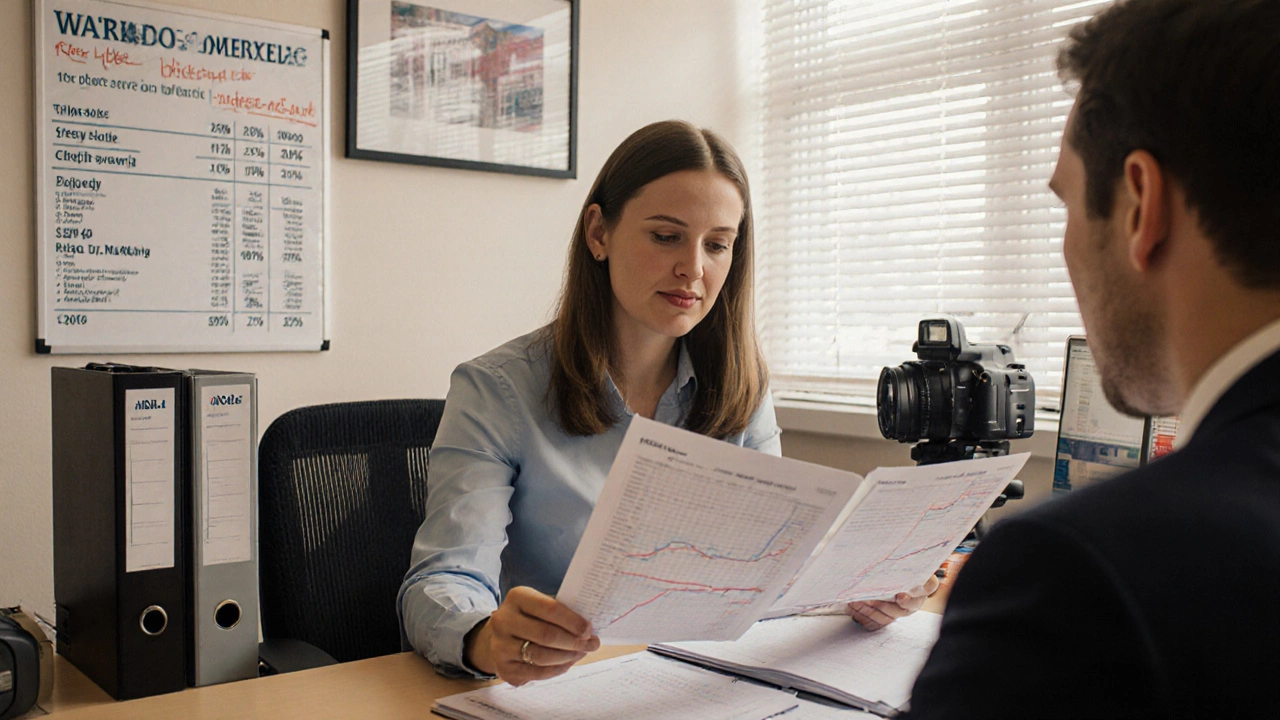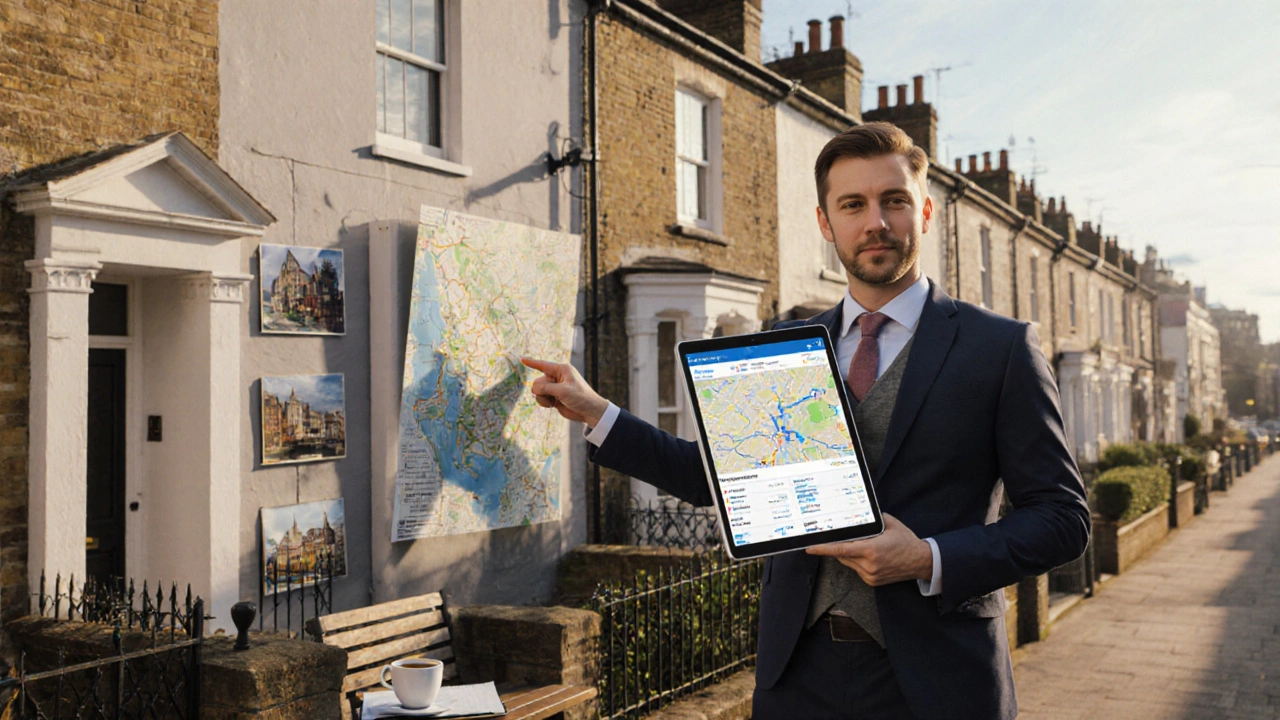Estate Agent Comparison Tool
Agent Evaluation Criteria
Enter details for each agent you're considering. The tool will score them based on key factors from the article.
Choosing the right estate agent isn’t just about finding someone with a sign outside their office. It’s about finding someone who knows your neighborhood, understands your goals, and actually works for you-not just to close a deal, but to get you the best outcome. Too many people pick the first agent they meet or the one with the flashiest website. That’s a mistake. The right agent can save you time, money, and stress. The wrong one? They can cost you thousands.
Start with local knowledge
An estate agent who knows your street, your block, and your school district is worth more than one who just lists properties on Rightmove. Look for someone who’s been selling homes in your exact area for at least three to five years. They’ll know which homes sell fast, which ones sit for months, and why. They’ll know if the new park down the road is going to boost prices or if the planned road widening is going to scare buyers off.Ask them: "How many homes have you sold in the last six months in ZIP code [your area]?" If they hesitate or give you a vague answer, walk away. A good agent can tell you the average sale price of three-bedroom terraces on Maple Street last quarter. If they can’t, they’re not focused enough.
Check their track record, not just their photos
A glossy brochure doesn’t mean they’re good at selling. Look for hard numbers. Ask for proof of recent sales-specific addresses, sale prices, and how long those homes sat on the market. Don’t settle for "I sold a place on Elm Street last month." Ask for the exact date, the original asking price, the final sale price, and how many viewings it got.Compare that to other agents in your area. If Agent A sold five homes in your neighborhood in the last three months at 97% of asking price, and Agent B sold two at 88%, the difference isn’t luck. It’s skill. Top agents in high-demand areas like Brighton, Manchester, or Bristol often sell homes 20-30 days faster than average. That’s not magic-it’s marketing, timing, and negotiation.
Meet them in person
Don’t book a Zoom call and call it a day. Go to their office. Look around. Are the walls covered in local photos? Do they have binders of recent sales? Is the receptionist friendly or dismissive? A cluttered desk isn’t a red flag-but a lack of local knowledge is.Ask them how they handle viewings. Do they show homes themselves, or send an assistant? Do they give feedback after every viewing? A good agent will call you within 24 hours after each viewing with honest feedback: "Three people liked the kitchen but thought the garden was too small," or "One buyer said they’d pay full price if you’d repaint the front door." That level of detail matters.
Ask about their marketing plan
A good agent doesn’t just slap your listing on Rightmove and wait. They build a strategy. Ask: "How will you market my home?" Look for specifics:- Professional photography and virtual tour
- Targeted social media ads in your postcode
- Open house events on weekends
- Network with other local agents to find off-market buyers
- Listing on Zoopla, OnTheMarket, and PrimeLocation
If they say, "We’ll put it online," that’s not a plan. That’s an afterthought. The best agents use data to target buyers-like showing your home to people who’ve searched for "three-bedroom homes near [your school]" in the last 30 days. That’s how you get multiple offers.

Understand their fees and contract
Fees vary. Some charge 1.25%, others 2.5%. Some offer "no sale, no fee." Others lock you in for 8-12 weeks. Read the small print. Ask: "What happens if I want to switch agents before the contract ends?" Some charge you for marketing costs even if you pull out. Others don’t.Also, ask if they’re members of ARLA Propertymark or NAEA Propertymark. These aren’t just fancy acronyms-they mean the agent follows strict rules on handling money, advertising, and client communication. If they’re not accredited, that’s a warning sign.
Listen to how they talk about your home
A good agent doesn’t just say your house is "charming" or "perfect for a family." They point out specific features: "The original sash windows add value because buyers in this area pay a 12% premium for period homes," or "The loft conversion was done to building regs, so it adds legal square footage."If they talk in vague fluff, they’re not doing their homework. If they talk in facts and local trends, they’re the one you want.
Get references
Ask for two or three recent clients-sellers, not buyers-and call them. Don’t ask if they were happy. Ask: "Did the agent keep you updated? Did they negotiate well? Would you use them again?" The best agents have repeat clients. If someone’s been with the same agent for their second home sale, that’s a strong signal.Also, check Google Reviews and Trustpilot. Look for patterns. If three people say, "They didn’t return my calls," that’s not a one-off. It’s a system failure.
Trust your gut
You’re not just hiring someone to sell a house. You’re hiring someone to handle one of the biggest financial decisions of your life. If they rush you, dismiss your questions, or make you feel small, walk away. The best agents listen more than they talk. They don’t push you into an offer. They help you decide when it’s right.One client told me she chose her agent because he showed up early, brought coffee, and asked about her kids before talking about the house. That’s not a gimmick. It’s respect. And respect leads to better results.
What to avoid
Avoid agents who:- Promise you an unrealistic sale price to win your listing
- Don’t have a clear marketing plan
- Never show up for viewings
- Use stock photos instead of real shots of your home
- Don’t return calls for more than 48 hours
- Work for multiple agencies at once (they’re spread too thin)
These aren’t just annoyances-they’re red flags that cost you money.
Final checklist before signing
Before you sign anything, make sure you’ve checked:- They’ve sold at least 5 homes in your area in the last 6 months
- They’re accredited by ARLA or NAEA
- They show you real sales data-not just testimonials
- They explain their marketing plan in detail
- They’re willing to give you references
- You feel heard, not pressured
If you can check all those boxes, you’ve found someone who’ll get you the best price and the least stress. Don’t rush. Talk to at least three agents. Compare their answers. The right one will stand out-not because they’re the loudest, but because they’re the most honest, prepared, and local.
How much should I expect to pay an estate agent?
Most estate agents charge between 1% and 2.5% of the final sale price, plus VAT. In competitive areas like London or Manchester, you’ll often pay closer to 1.25%-1.75%. Some offer fixed fees, especially for lower-priced homes, but make sure you understand what’s included-marketing, viewings, legal paperwork. Always ask for a full breakdown before signing.
Can I use more than one estate agent?
Yes, but it’s risky. Joint agency means you pay multiple commissions, and agents might not work as hard if they know someone else is also marketing your home. It can also confuse buyers. Most experts recommend sticking with one strong local agent who has a clear plan. If you’re not getting results after six weeks, switch-not add.
Do I need an agent if I’m selling privately?
You don’t legally need one, but most private sellers end up spending more time and getting less money. Agents handle viewings, negotiations, legal paperwork, and buyer vetting. Without them, you’re doing all the work-and often missing out on buyers who only search through agent listings. If you’re not confident in pricing, marketing, or negotiation, an agent is worth the fee.
How do I know if an agent is really local?
Ask for their last five sales addresses. If they’re all in your postcode or neighboring streets, they’re local. If they’re scattered across the city, they’re just using your area as a lead source. Also check their website-do they mention local landmarks, schools, or transport links? Real local agents talk about the community, not just the property.
What if my home doesn’t sell quickly?
A good agent will review your pricing and marketing after 3-4 weeks. If nothing’s happening, they should suggest a price drop, better photos, or a new open house strategy. If they say, "It’s just the market," and do nothing else, that’s a red flag. Real agents adapt. They don’t wait.
